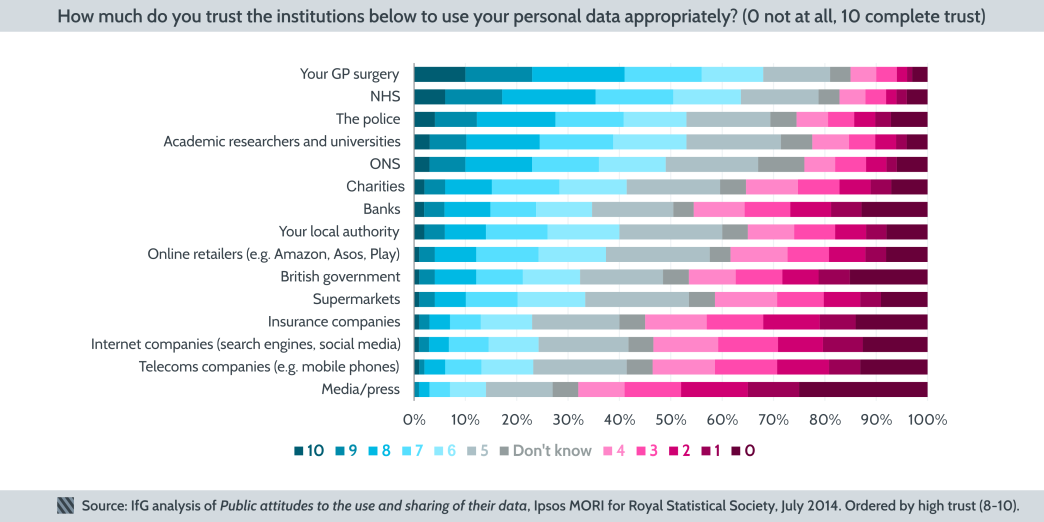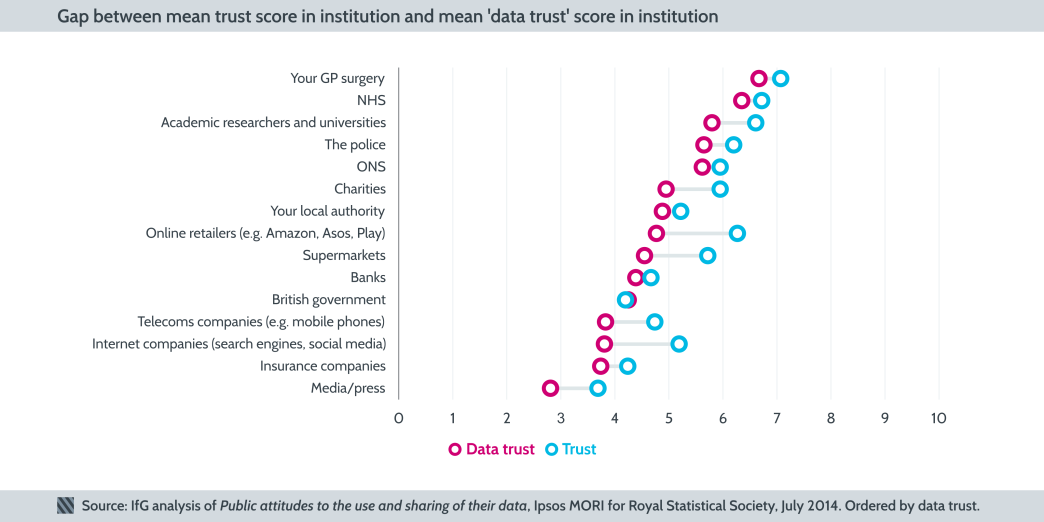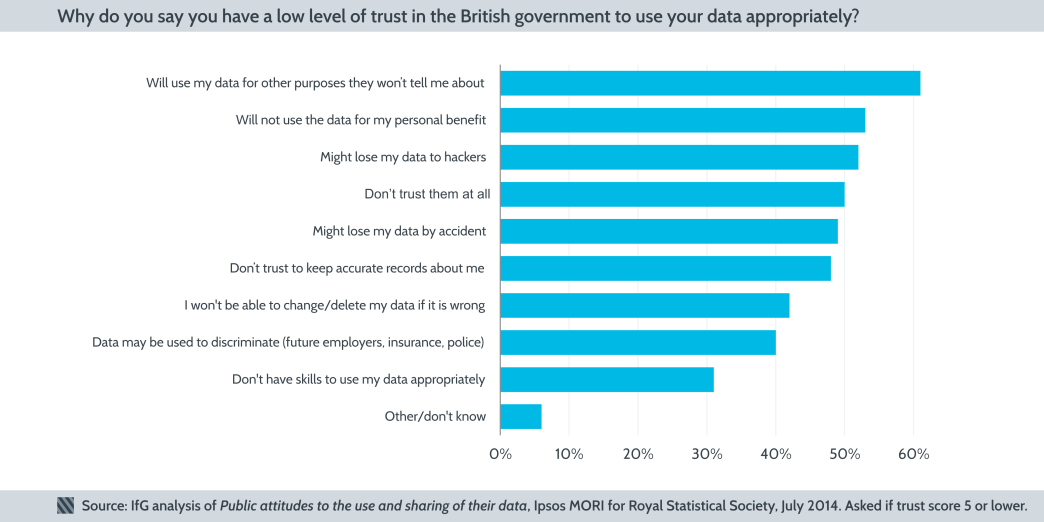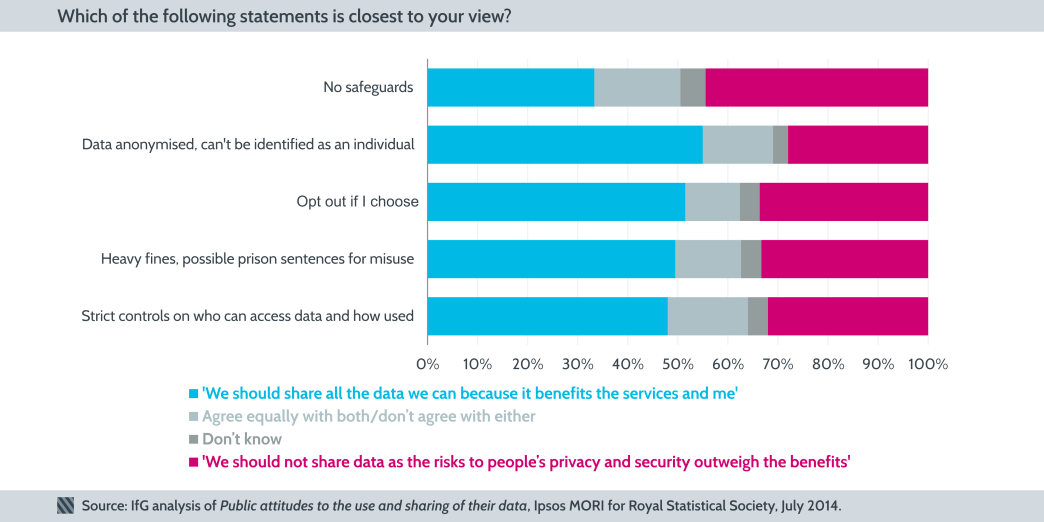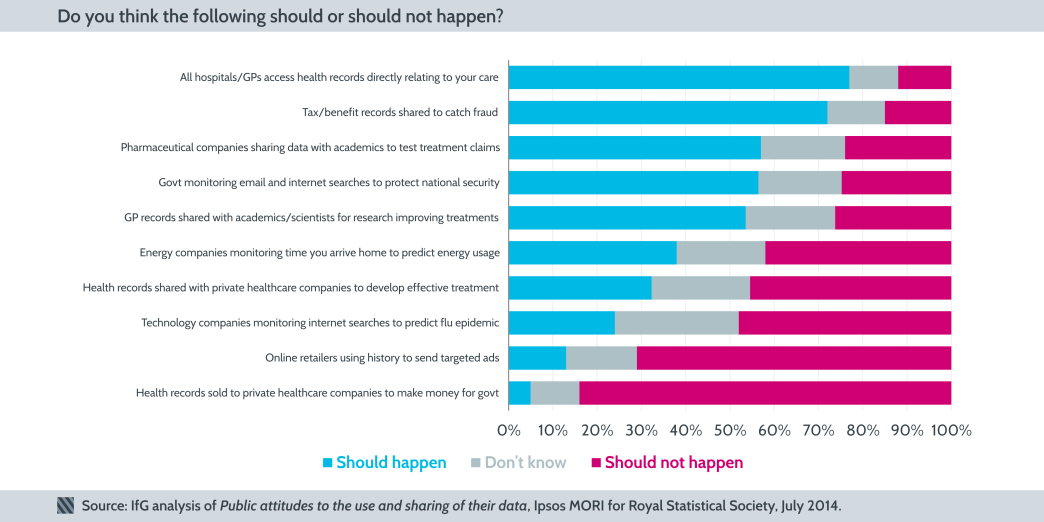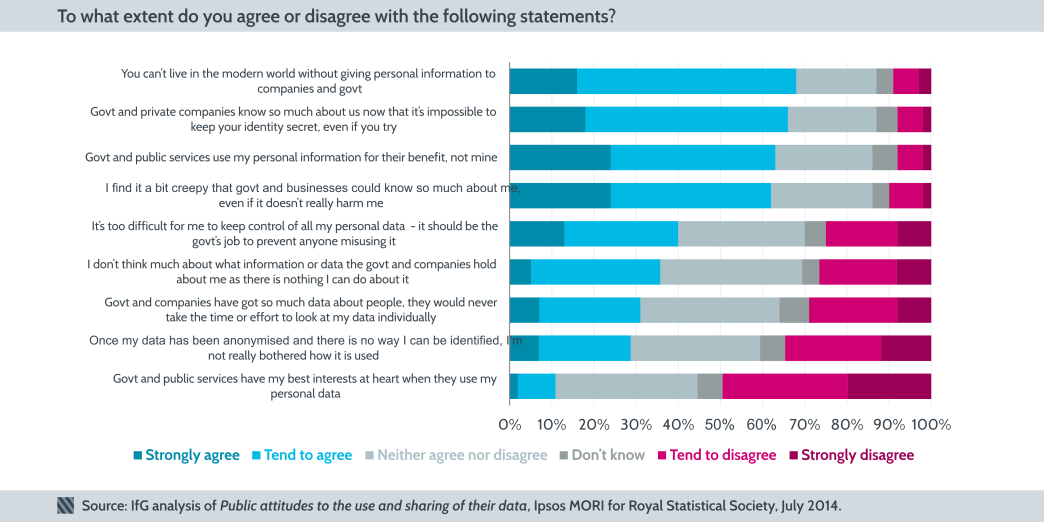A government consultation on data-sharing across government closes on Friday. Gavin Freeguard gives a quick summary – and looks at the most recent polling on public attitudes to data in government.
Sharing data – with government, with public services, with companies like Amazon and Google – is an inescapable part of modern life.
The Government’s consultation on data sharing, Better Use of Data, outlines legislative proposals to ‘modernise the UK data landscape’ and allow data to be shared across government, while ensuring it is ‘used responsibly, proportionately and securely’ and ‘respected and handled sensitively’.
The proposals are designed to support ‘the delivery of better targeted and more efficient public services to citizens’ and ‘better research and official statistics to inform better decision-making’, and are grouped under three headings:
- Improving public services
- Tackling fraud and debt
- Allowing use of data for research purposes and for official statistics.
Polling conducted by the Royal Statistical Society (RSS) and Ipsos MORI in 2014 can give us a flavour of what the wider British public thinks about data sharing.
‘Data trust’ in government is behind other parts of the public sector, but ahead of telecom and internet companies and the media.
When asked whether they trusted the British Government to use their personal data appropriately, just 12% of respondents gave marks of eight, nine or ten out of ten. 41% of respondents gave the same score to their GP surgery, 35% to the NHS, 27% to the police, 24% to academic researchers and universities, and 23% to the Office for National Statistics. The media/press was at the bottom of the table on just 3%.
Interestingly, in all cases apart from government, there was a ‘data trust deficit’ – the data trust scores were lower than general trust scores. The RSS has said this shows that ‘[i]n this data rich world, companies and government have to earn citizens’ trust in how they manage and use data’.
People with low data trust in government were most concerned about their data being used for purposes they wouldn’t be told about.
61% of respondents (who gave a data trust score of 5 or lower) were worried government would use their data for purposes that they hadn’t been told about, while others worried about data not being used for their personal benefit or being lost. The consultation includes a number of measures that could mitigate such concerns, including codes of practice, Privacy Impact Assessments, and the de-identification and anonymisation of personal data.
People were more likely to agree that data should be shared to benefit services when data anonymisation or other safeguards were in use.
Overall, 33% of people agreed or strongly agreed that the benefits to services from data sharing outweighed the risks of privacy and security, even when no safeguards were in place; 44% disagreed. But support for the benefits of data sharing rises from a third to around a half when safeguards are included, with data anonymisation (55%) deemed more effective than the ability to opt out (52%), fines or prison sentences (49%), and strict controls on data use (48%).
People thought data sharing to improve healthcare, to tackle fraud and to aid medical research should happen...
More than 70% of respondents thought that sharing health records to improve care and sharing tax and benefit records to catch fraud should happen. (The consultation does not cover data sharing to protect national security, part of the Investigatory Powers Bill 2015 – 2016 currently going through Parliament.)
It is also interesting that support falls when data sharing is with private companies instead of academics. One of the questions in the consultation is whether non-public sector bodies should be included in the new data sharing powers.
…although they remain concerned the data won’t be used to their benefit, despite it being inevitable.
Those polled in 2014 may have thought some data sharing should happen and could bring real benefit to public services, but they were also sceptical that data would be used for their benefit – 11% agreed or strongly agreed that government and public services had citizens’ best interests at heart, but 63% thought they used data for their benefit, not citizens’. Despite the results showing safeguards make a difference, 29% agreed or strongly agreed anonymisation would bother them less compared to 35% who still would be.
Most government initiatives on data so far have focused on opening things up. In the last year, though, government appears to have become more focused on using data. Paul Maltby, Head of Data at the Government Digital Service (GDS), has written about ‘transform[ing] how government uses data’ through ‘supporting better decision making’ and ‘digital services’ as well as opening things up. GDS has also started work on a number of ‘registers’ of authoritative information.
Some of these polling numbers – and the high percentage of ‘don’t know’ and ‘neither agree nor disagree’ responses – suggest more information and more public awareness of the implications of these changes is needed.
Many of those surveyed – more than 60% – think giving up data to government is part of the modern world and you can’t protect your identity, even if you try. Data sharing might be seen as inevitable – but the exact nature of that data sharing isn’t.
Have your say by taking part in the Better Use of Data consultation.
